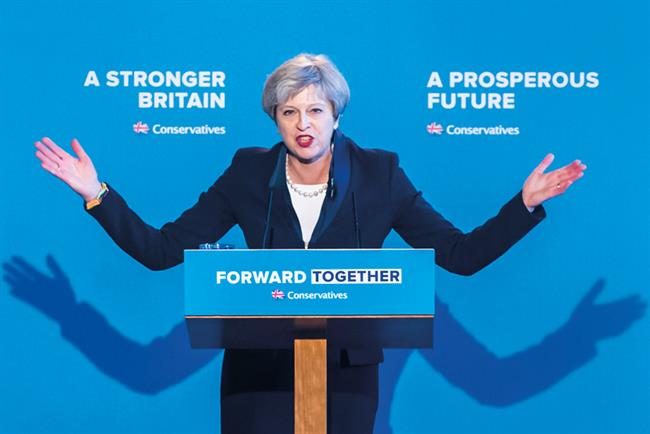The Good: Nintendo Switch
When Nintendo gets it right, they really get it right. The brand recently announced a whopping £8m of Nintendo Switch sales within the first six months of launch. Successful Nintendo launches have one thing in common: a game-changing, explainable-to-your-nan feature that challenges how people game. They did it with the Wii, they failed with the Wii U, and they came storming back with the Switch. Their launch video wasn’t high concept, it simply reinforced the same point over and over again. This device, and your game, can go anywhere with you. You’re not tied to your console, it adapts around your life; you’ve always got the game. When you have a killer feature, you just get out of its way.
The Good: McGregor V. Mayweather
Boxing is sold on manufactured animosity. They are professional sportspeople, but for 12 weeks, we have to believe they hate each other. Nobody who knew anything about boxing thought it was going to be a good fight. You had the best defensive boxer (i.e. boring to watch) of his generation up against a kick boxer. And yet it was one of the biggest revenue generating fights of all time. It was Sky Sports’ biggest ever at over £20 million and second only to Mayweather v. Pacquiao in the US. This was a masterful launch based on one key point: the possibility that this unpredictable Irishman could do something impossible.
Everyone played their part – Mayweather talking about how old he felt, McGregor talking about reinventing boxing. A global press conference tour that was mostly panto with swear words. Training leaks, rumours of spies, mysterious training techniques. It wasn’t pretty, but it was effective. They had to reach beyond fight fans and upgrade it to a cultural event. FOMO was a big part of this launch. What if McGregor did it? Do I want to be asleep for that? A moment in history’s worth £20, isn’t it? He didn’t do it, obviously. But the whole thing was based on all of us temporarily taking leave of our senses and believing he might. But everybody made up at the end and went home with a truckload of money, and it wasn’t a terrible fight.
The Good: IT
Stephen King’s IT was written over 30 years ago and the mini-series is 27 years old. And yet, it’s now the most successful horror movie of all time. How? IT came ready made with iconic imagery. When an experiential campaign involved lonely red balloons tied to sewer grates, everyone knew the terrifying significance. Their social and experiential campaign made the very most of the red balloon, a child’s yellow raincoat and yes, that bloody clown. They all featured prominently in the trailers, posters and campaign material. Often the key to a successful launch is distilling the offer down to its most compelling essence. Every launch campaign should have its equivalent of the red balloon, the tip of your sword that transcends channels. You know when you have it and you know when you don’t. The big mistake is to carry on in the hope that people will get the nuance/meaning/your heartbreaking genius.
The Bad: Conservative General Election campaign
I’m not going into the politics, but even the most true blue Tory has to admit they had a mare. Theresa May went from Strong and Stable™ to Weak and Wobbly™ overnight. From a launch perspective, they made a few classic mistakes. They completely misjudged their audience. Post-Brexit, this was the most engaged electorate in a long time leading to the highest turnout in 25 years. The golden thread running through the Conservative election campaign was Strong and Stable™, you may have heard that once or twice. But there are two problems with this. Firstly, it’s not credible when you’re having an election you don’t need to. People had election fatigue, and now they were being asked to do it all again. So there was a lack of enthusiasm from Conservative voters who thought she’d walk it anyway. On the other side, there was a thirst for change, which was exactly what Corbyn was selling.
May also made the fatal mistake of failing to launch from the inside first. With MPs holding the biggest influence over votes, May should’ve engaged, motivated and driven home the key message with her fellow MPs more effectively, instead of keeping her cards close to her chest. Combine all of this with May’s weaknesses as a campaigner and unwillingness to debate, and it’s hardly surprising. This launch crashed because it should never have been launched in the first place.
The Ugly: Las Vegas' self-driving bus
In a literal car crash, . A joint venture by AAA, Kelois and Navya, it was heralded as the States’ first self-driving shuttle available to the public, but ended up being put out of action by an overzealous truck driver. Nobody was hurt and no, it wasn’t the poor bus’ fault, but when you’ve got , this launch doesn’t exactly put your mind at ease, does it? Will the future of automotive be driverless and, more importantly, will it be safe?


